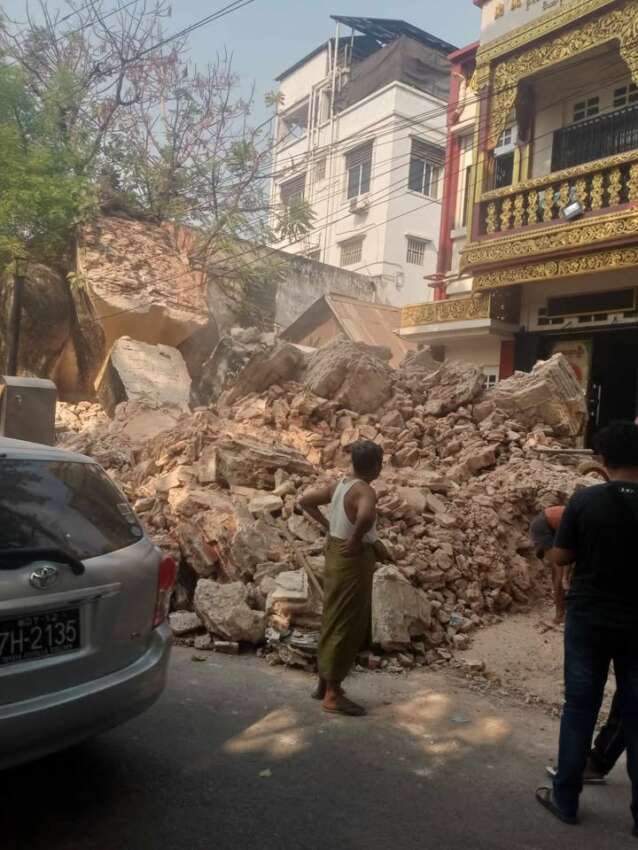
Following the powerful earthquake that struck Mandalay on March 28, approximately 80 percent of the city has been destroyed, and many bodies remain trapped under collapsed buildings due to the inability to conduct rescue operations. Local residents report that excavator rental costs have skyrocketed to millions of kyats, making it impossible for ordinary citizens to recover their loved ones’ remains. The situation has created a stark divide between those who can afford rescue operations and those who cannot.
Only the wealthy and those with military connections have been able to rent excavators and rescue their family members quickly, while the poor and working-class residents remain helpless. The city currently faces ongoing communication challenges with disrupted phone and internet services, with only WiFi connections remaining functional. The absence of electricity during nighttime has led to increased criminal activity, and with the military council forces largely absent, civilians have been forced to organize their own security measures. The rising cost of basic commodities has made survival increasingly difficult, with many residents depending on humanitarian aid for basic necessities.
In one notable case, the owner of Shwe Myanmar Restaurant spent 20 million kyats to rent excavators to search for bodies in the collapsed building. The search recovered nine bodies, including five people who were on the initial search list. However, the search was discontinued after finding these bodies, leaving other potential victims still buried under the rubble, with decomposition odors continuing to emanate from the site. Rather than assisting with rescue efforts, the military council-appointed administrators are focused on collecting guest registration fees of 5,000 kyats per household, further burdening the already struggling population.



